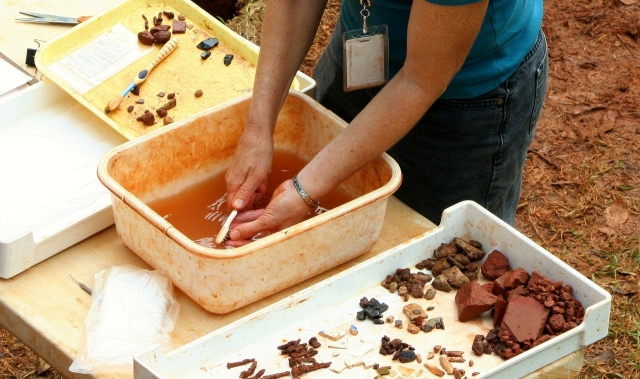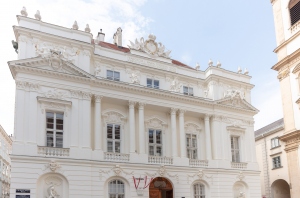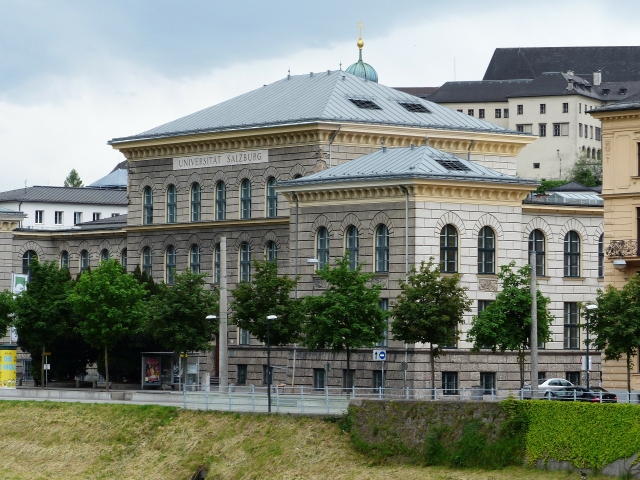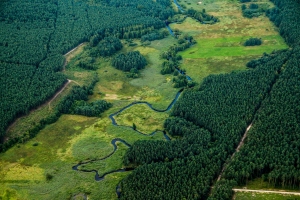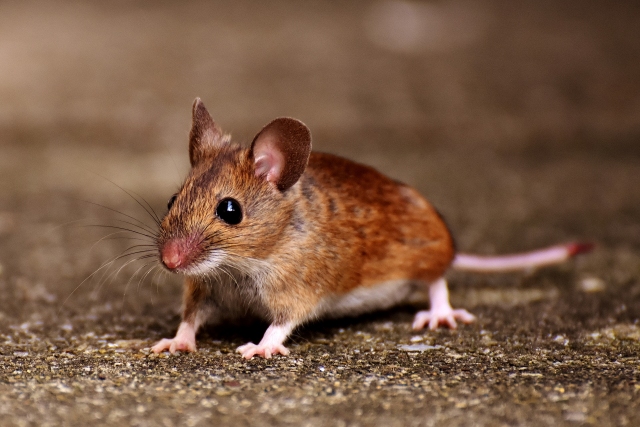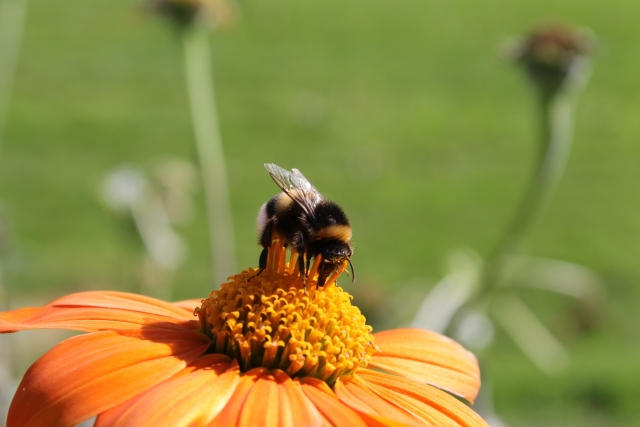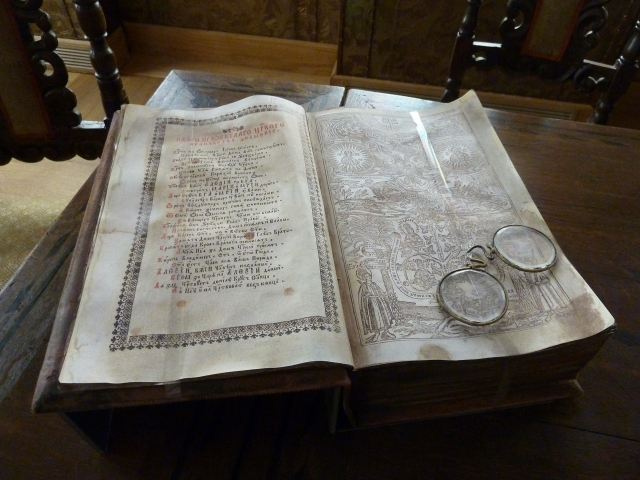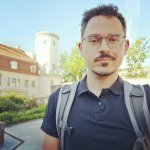
Daniel Dörler
Archaeopublica
Archaeopublica, the association for the promotion of citizen participation in archaeology, sees itself as a mediator between the interested public and the archaeological professional community. Voluntary lay researchers support archaeologists in the discovery, research and preservation of archaeological monuments. Archaeologists, for their part, support lay researchers in pursuing their interests in a meaningful and legal manner. The public interest in archaeology and monument preservation is defined in national laws and international treaties. Museums, heritage agencies, universities and excavation companies take care of the research and preservation of our archaeological heritage on behalf of the community. However, active engagement with the past is not only reserved for professional archaeologists and historians. In a survey of 500 randomly selected people in Austria in 2018, almost two thirds of those questioned said that they would like to actively participate in archaeology.
For this reason, the Archaeopublica Association has joined the Citizen Science Network Austria and we are very pleased to have a competent and reliable partner in the field of archaeology.

Ludwig Boltzmann Gesellschaft
The Ludwig Boltzmann Society (LBG) is a research institution with thematic focuses in medicine, the life sciences as well as the humanities, social and cultural sciences, and it specifically initiates new research topics in Austria. Together with academic and applying partners, the LBG currently operates 18 Ludwig Boltzmann Institutes and develops and tests new forms of cooperation between science and non-scientific actors such as companies, the public sector and civil society.
Socially relevant challenges, which research can help to overcome, are to be identified and addressed at an early stage. In 2016, the LBG Career Center, which supervises 200 pre- and postdocs, and the LBG Open Innovation in Science Centre, which aims to unlock the potential of Open Innovation for science, were established. With " Reden Sie mit!" the Ludwig Boltzmann Society was one of our first partners, and is still a reliable, competent and active member, without whom the Citizen Science Network Austria would not be what it is today. We would like to thank the LBG and especially the OIS Center for their support and are looking forward to further cooperation!

ACDH-ÖAW
The Austrian Center for Digital Humanities at the Austrian Academy of Sciences (ACDH-ÖAW) was one of our first partners from the humanities. It has set itself the goal of strengthening the humanities through the application of digital technologies and methods and offers various services in this area. In its research, the ACDH-ÖAW team deals mainly with questions concerning texts or language, especially dialects. The ExploreAT project is part of this research, and has also been on Österreich forscht for some time.
We are very happy to have the ACDH-ÖAW as a strong partner in the digital humanities in the Citizen Science Network Austria!
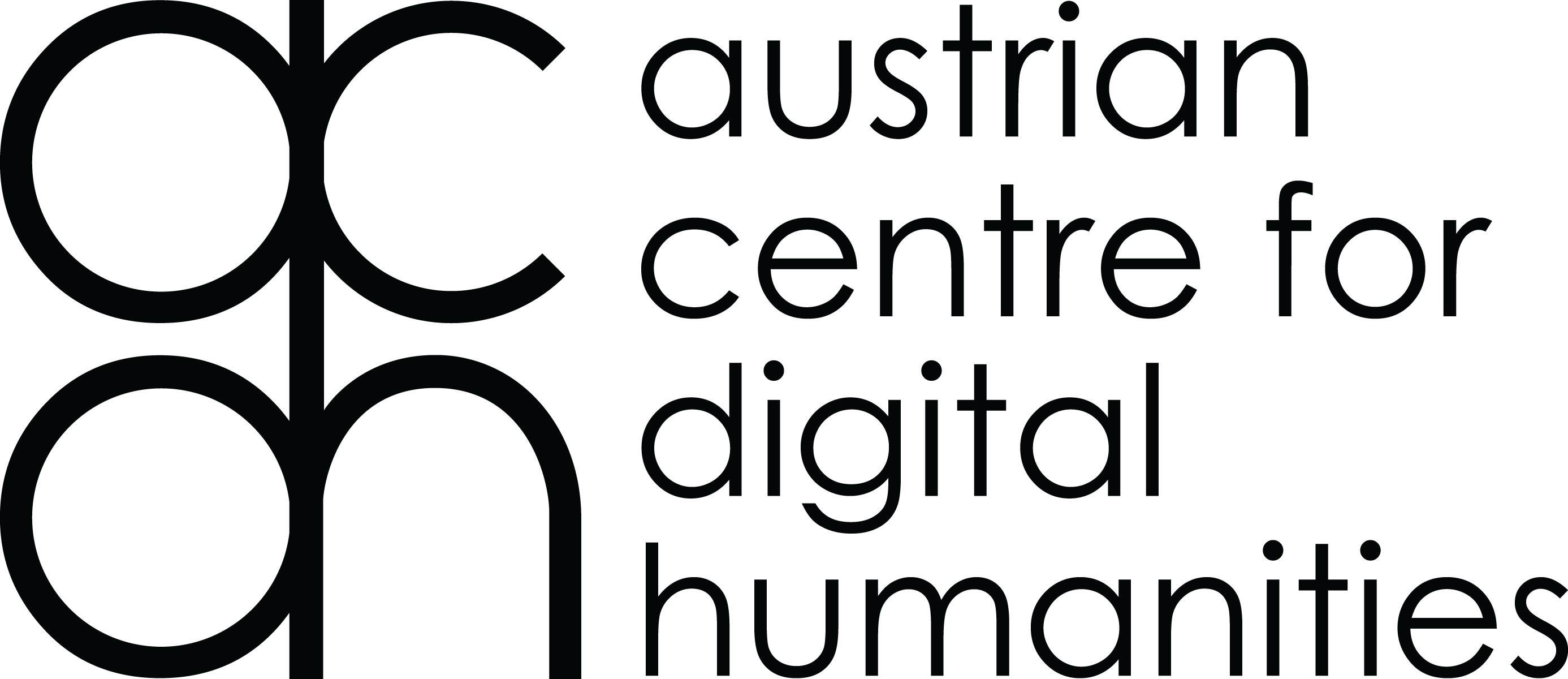
University of Salzburg
We are very happy to introduce the University of Salzburg as an important partner in the Citizen Science Network Austria. Not only has the University of Salzburg already organized a Salzburg Citizen Science Conference in 2016, but it also welcomed the 4th Austrian Citizen Science Conference and co-organized it. Numerous citizen science projects on Österreich forscht come from the University of Salzburg, and the Kontaktstelle Citizen Science ensures the internal and external networking of these projects, and also serves as a contact point for all questions concerning citizen science at the university.
We are very pleased to have the University of Salzburg as an active and competent partner in the Citizen Science Network Austria.
International Institute for Applied System Analysis (IIASA)
IIASA is an international research institute based in Laxenburg near Vienna. Its main focus is on interdisciplinary research in the fields of environment, economy, technology and population with regard to the human dimension of global change. IIASA was founded on the initiative of the United States of America and the Soviet Union during the Cold War as a bridge between scientists from East and West. It was one of the first partners of the Plattform Österreich forscht and is a strong player in the international Citizen Science Community. Several citizen science projects of IIASA can be found on Österreich forscht. We are therefore all the more pleased that IIASA will continue to be a reliable and competent partner in the Citizen Science Network Austria in the future.

Apodemus
In its zoological and ecological studies, the Private Institute for Wildlife Biology Apodemus is engaged in basic research (e.g. habitat use, community and population ecology) and in topics of nature and species conservation. The Apodemus team designs specialized planning and development concepts and carries out population surveys and progress assessments. The evaluation methods include zoological skills such as preparation, the creation of statistical models as well as GIS-based spatial analysis and habitat modelling. In addition to the research activities, Apodemus also focuses on environmental education. The team writes scientific publications and articles, designs information material, and offers lectures and natural history excursions to arouse interest and sympathy for wildlife.
Apodemus was represented at Österreich forscht very early on and we are very pleased to have the Apodemus team as a competent and reliable partner in our network.

Austrian Institute of Technology
The AIT (Austrian Institute of Technology) is Austria's largest non-university research institution and is the specialist for the central infrastructure topics of the future among European research institutions. The AIT's research and technological development work results in fundamental innovations for the next generation of infrastructure technologies in the fields of Energy, Mobility Systems, Low-Emission Transport, Health & Bioresources, Digital Safety & Security, Vision, Automation & Control and Technology Experience. These scientific research areas are complemented by expertise in Innovation Systems & Policy.
The AIT is also active in the field of Citizen Science: in addition to the (already closed) Biochar project, where a small project could be carried out at home, the AIT also took part in the Citizen Science Award, where antiphising approaches were developed and tested together with citizens.
We are very happy to have the AIT as an active member of the Citizen Science Network Austria!
OeAD
The OeAD advises, promotes and connects people and institutions in education, science, research and culture with its future-oriented programmes. As the agency for education and internationalisation of the Republic of Austria, it is the interface to educational opportunities for all phases of life - from kindergarten and school to higher education and science, vocational training and adult education. With different funding lines, children, young people as well as adults are enabled to participate in social processes as well as in science, art and culture.
With its Center for Citizen Science and, especially, the Young Science initiatives, the OeAD supports the engagement of young people and adults with science and research in order to gain a better understanding of research and scientific work. The Center for Citizen Science serves as an information, advisory and service point for citizen science and carries out a number of initiatives such as the annual research competition "Citizen Science Award". With the centre, the OeAD primarily addresses researchers and scientific institutions with the aim of increasing awareness of the citizen science research approach in Austria. The research funding programme "Sparkling Science 2.0" and the funding of "Children's and Youth Universities" are also coordinated at the OeAD Center. Other Young Science initiatives such as the Young Science Ambassadors, who visit schools on a voluntary basis, the Young Science topic platform for pre-scientific work or diploma theses or the initiative "Pupils to Universities" are primarily aimed at schools and extracurricular educational institutions.
Further information:
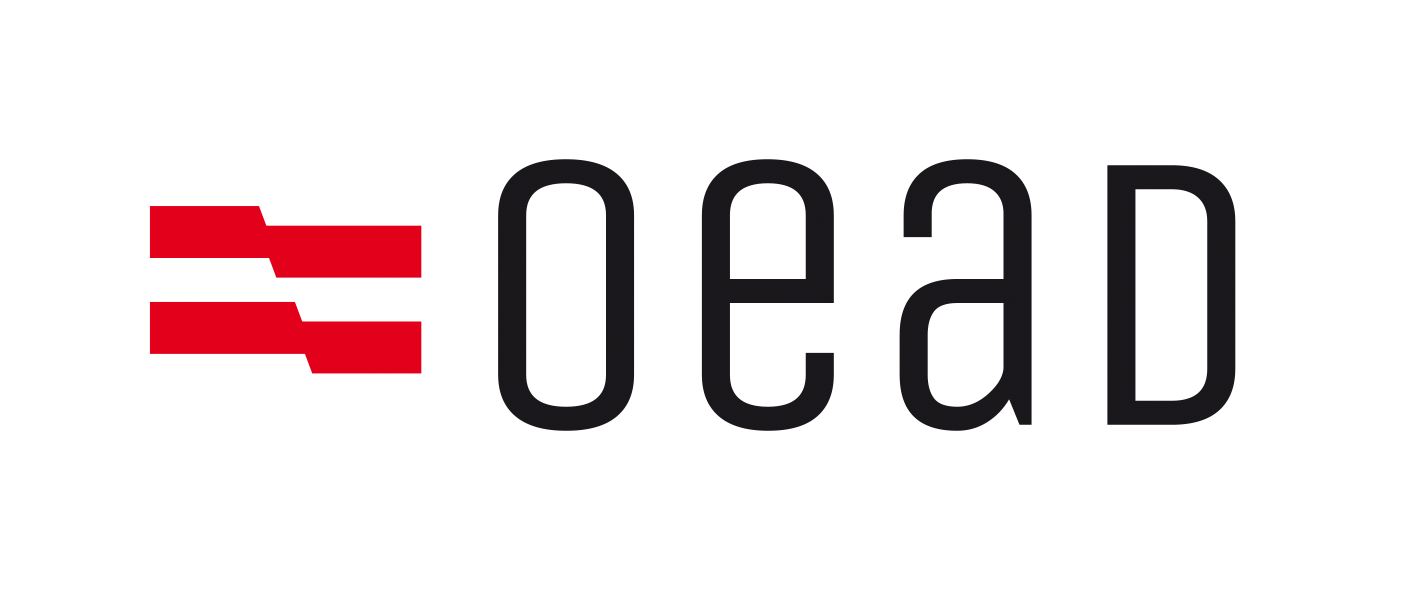
MA 22
The Municipal Department 22 for Environmental Protection (MA 22 for short) of the City of Vienna is the only authority that is represented with a citizen science project on Österreich forscht, namely the "Wiener Gebäudebrütern". However, MA 22 has been focusing on citizen science for a long time. With the help of the apps "Naturbeobachten in Wien" and "Wiener Flora und Fauna App" and via e-mail, nature observations in Vienna can be reported by the public. In July 2016, the people of Vienna were called upon to report stag beetles (Lucanus cervus), a strictly protected species typical for Vienna. More than 400 reports were received, which can now be incorporated into the work of MA 22.
MA 22 is thus also an international pioneer, because in only a few countries authorities use citizen science as a scientific method. As one of the first partners of Österreich forscht, MA 22 has shown, by joining the Citizen Science Network Austria, that it wants to continue to work with citizens to improve environmental protection in the city of Vienna.

GenTeam
GenTeam is a loose association of genealogists who work independently or in teams on databases and want to make these data available to all researchers free of charge. All staff members work voluntarily; GenTeam is not profit-oriented. The geographical focus of the data collections is on present-day Austria and its neighbouring areas.
GenTeam is one of the partners of the first hours of the Citizen Science Network Austria, and was the first project in the field of historical research, and last but not least has brought other partners from this scientific field into the network. Therefore, GenTeam has been a valuable partner in the Citizen Science Network Austria from the very beginning and we are very pleased to have a highly valued and reliable colleague in the network in Felix Gundacker, the head of GenTeam.
![]()

